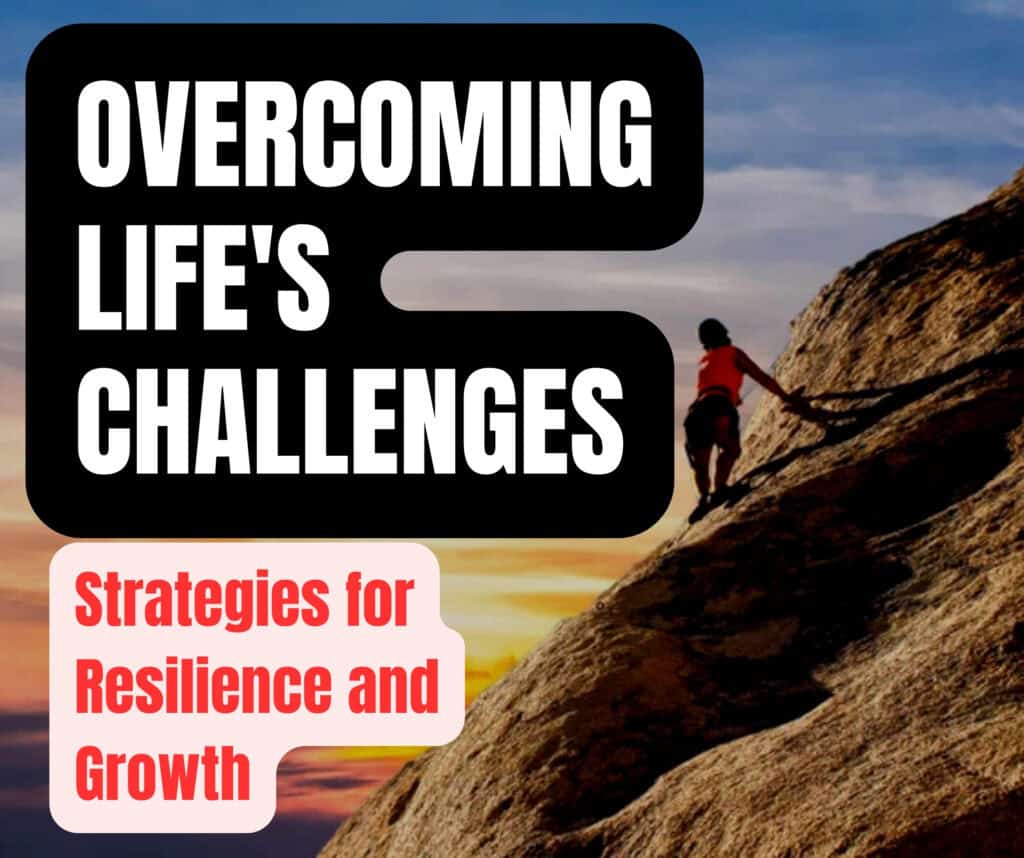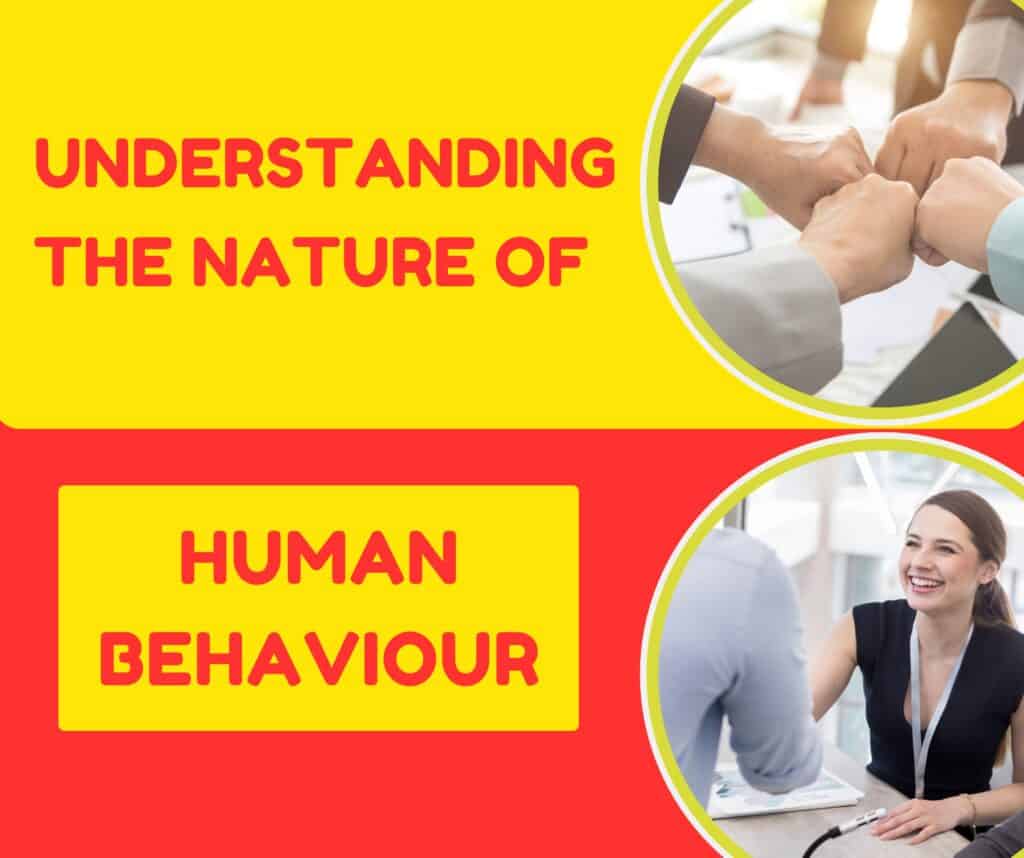Life is filled with unexpected twists and turns, and at some point, we all encounter challenges that test our strength, resilience, and character. Whether it’s the sudden loss of a loved one, financial instability, health struggles, or professional setbacks, these obstacles often seem insurmountable. While facing adversity is an inevitable part of the human experience, how we respond to these challenges defines not only the outcomes but also the person we become in the process.
Challenges can feel overwhelming, leaving us questioning our abilities and direction. However, it’s important to remember that adversity can also be an opportunity for growth. It is through these trials that we learn to adapt, push past our limits, and ultimately grow stronger. Resilience—the ability to bounce back from hardship—is a skill that anyone can develop. With the right mindset, tools, and support, we can not only overcome life’s challenges but emerge from them more capable, more insightful, and more determined than before.
In this article, we will explore practical strategies to build resilience and navigate life’s difficulties with strength and confidence. From cultivating a positive mindset and setting realistic goals, to seeking support and developing coping skills, you will learn how to face challenges head-on and transform them into stepping stones for personal growth. No matter the obstacles you face, you have the power to rise above them. Let’s dive into how you can overcome life’s challenges and discover the path to resilience and success.
Change your life, change your future. Start your business today!
Try Wealthy Affiliate (For Free).
Understanding Life’s Challenges
Life is a journey marked by a series of challenges, each presenting opportunities for growth and self-discovery. Understanding these challenges is the first step toward overcoming them. By recognizing the different types of obstacles we face, we can better equip ourselves with the tools and strategies necessary for resilience.
Definition of Life Challenges
Life challenges are significant obstacles that disrupt our normal routines and emotional well-being. These challenges can arise from various sources and manifest in many forms, often leaving us feeling overwhelmed, stressed, and uncertain about the future. They are not just external circumstances; they can also stem from internal conflicts, fears, and doubts. The key to overcoming these challenges lies in acknowledging them as a part of life’s natural ebb and flow, rather than as insurmountable barriers.
Personal, Professional, and Emotional Challenges
Life challenges can be broadly categorized into three main types: personal, professional, and emotional challenges.
- Personal Challenges: These often relate to our personal lives, encompassing aspects like relationships, family dynamics, and individual health. They can include struggles with self-esteem, lifestyle changes, or personal loss.
- Professional Challenges: These challenges are associated with our careers and work environments. They may involve job-related stress, conflicts with colleagues, or difficulties in achieving professional goals. In today’s fast-paced world, maintaining a work-life balance can also be a significant challenge.
- Emotional Challenges: Emotional challenges include feelings of anxiety, depression, and stress that can arise from both personal and professional issues. These internal battles can affect our mental health and overall quality of life.
Common Types of Challenges
Understanding the various types of challenges we might encounter helps in framing our approach to overcoming them. Here are some of the most common types of challenges people face:
- Financial Difficulties:
- Financial challenges can arise from unexpected expenses, job loss, debt, or poor financial planning. They can lead to stress and anxiety, impacting not only personal well-being but also relationships and professional performance. Addressing financial difficulties often requires budgeting, seeking financial advice, and finding additional sources of income.
- Relationship Issues:
- Interpersonal relationships can be a source of joy and support, but they can also bring significant challenges. Conflicts with partners, friends, or family members can create emotional turmoil and affect mental health. Relationship challenges often stem from miscommunication, differing expectations, or external pressures. Improving these relationships requires open dialogue, empathy, and sometimes professional counseling.
- Health Problems:
- Health challenges, whether physical or mental, can drastically alter one’s quality of life. Chronic illnesses, mental health issues, or unexpected medical emergencies can lead to feelings of helplessness and fear. Managing health problems often requires a proactive approach, including seeking medical treatment, making lifestyle changes, and building a support network.
- Career Setbacks:
- Career challenges may include job loss, lack of career advancement, workplace conflicts, or dissatisfaction with one’s job. These setbacks can lead to feelings of inadequacy and uncertainty about the future. Overcoming career challenges typically involves reassessing goals, enhancing skills, and actively seeking new opportunities.
The Importance of Resilience
Resilience is often described as the ability to adapt and recover in the face of adversity. It encompasses our capacity to withstand stress, bounce back from setbacks, and navigate through life’s challenges with a sense of strength and determination. Understanding resilience and its significance in our lives is essential, especially as we confront various difficulties. By fostering resilience, we can not only cope with challenges but also thrive in the midst of them.
What is Resilience?
Resilience is a psychological trait that enables individuals to face life’s challenges with a positive attitude and the determination to persevere. It is not merely about enduring hardship; rather, it is about growth and transformation in response to adversity. Resilient individuals are those who can adapt their thoughts and behaviors in response to difficult situations, allowing them to maintain their emotional stability and overall well-being.
The ability to bounce back from adversity is a cornerstone of resilience. This means that rather than being crushed by challenges, resilient people learn from their experiences and emerge stronger. They possess a growth mindset—believing that they can develop their abilities through hard work and learning—enabling them to view setbacks as temporary obstacles rather than permanent failures.
Benefits of Being Resilient
The importance of resilience extends beyond mere survival; it profoundly impacts various aspects of our lives. Here are some of the key benefits of cultivating resilience:
- Improved Mental Health:
- Resilience plays a crucial role in mental well-being. Individuals with strong resilience tend to experience lower levels of anxiety, depression, and stress. They are better equipped to manage emotional challenges and maintain a more positive outlook on life. By developing resilience, we can enhance our emotional regulation, allowing us to respond to stressors more effectively and with less emotional turmoil.
- Greater Life Satisfaction:
- Resilient individuals often report higher levels of life satisfaction. Their ability to cope with challenges allows them to maintain a sense of purpose and fulfillment, even during difficult times. This sense of satisfaction comes from knowing they can navigate obstacles and continue pursuing their goals, fostering a sense of hope and optimism about the future. Resilience encourages us to focus on what we can control, helping us appreciate the present moment and our accomplishments.
- Enhanced Problem-Solving Skills:
- Resilience enhances our ability to solve problems effectively. When faced with a challenge, resilient individuals approach it with creativity and resourcefulness. They are more likely to analyze situations objectively, consider various solutions, and make informed decisions. This proactive mindset not only helps in overcoming immediate challenges but also contributes to long-term success in personal and professional endeavors. By viewing problems as opportunities for growth, resilient individuals can adapt and innovate, finding solutions that might not be immediately apparent.
Affiliate Disclosure: This post contains affiliate links, and I may earn a commission if you purchase through them. However, these links offer valuable resources to help you build a profitable online business.
Try Wealthy Affiliate (For Free).
Strategies for Overcoming Life’s Challenges
Overcoming life’s challenges requires intentional strategies that foster resilience and promote growth. By employing specific techniques, individuals can navigate adversity with greater ease and confidence. Below, we explore several effective strategies for overcoming challenges, each focusing on practical steps that can be integrated into daily life.
1. Cultivating a Positive Mindset
A positive mindset is a powerful tool in overcoming challenges. It shapes how we perceive difficulties and influences our ability to respond effectively. Here are key practices for cultivating positivity:
- Practice Gratitude:
- Gratitude shifts our focus from what we lack to what we have. Regularly acknowledging the things we are thankful for can improve mood and increase overall well-being. Consider keeping a gratitude journal where you write down three things you appreciate each day. This simple practice can enhance perspective, making challenges seem more manageable.
- Affirmations and Positive Self-Talk:
- The way we speak to ourselves matters. Affirmations are positive statements that reinforce our self-worth and capabilities. By regularly repeating affirmations, we can rewire negative thought patterns and foster a more positive self-image. For example, saying “I am capable of overcoming obstacles” can boost confidence and motivation. Additionally, practicing positive self-talk—challenging negative thoughts and replacing them with constructive ones—can significantly enhance resilience.
2. Setting Realistic Goals
Setting clear and achievable goals is crucial in navigating challenges. Goals provide direction and a sense of purpose, making it easier to overcome obstacles. Here’s how to set effective goals:
- SMART Goals:
- The SMART criteria—Specific, Measurable, Achievable, Relevant, Time-bound—offer a framework for goal-setting that enhances clarity and focus. For instance, instead of saying, “I want to get fit,” a SMART goal would be, “I will exercise for 30 minutes, five times a week for the next three months.” This specificity helps track progress and maintain motivation.
- Breaking Challenges into Smaller Steps:
- Large challenges can feel overwhelming, leading to procrastination or giving up altogether. Breaking these challenges into smaller, manageable steps can make them more approachable. For example, if you’re facing a financial challenge, start by creating a budget, then identify one area to cut back on spending. Each small step completed provides a sense of accomplishment and builds momentum.
3. Seeking Support
No one should have to face challenges alone. Seeking support from others can provide the encouragement and perspective needed to overcome difficulties. Here are ways to access support:
- Talking to Friends or Family:
- Sharing your struggles with trusted friends or family members can provide relief and insight. Talking things through can help clarify your thoughts, and receiving encouragement from loved ones can boost resilience. Sometimes, simply knowing that others understand and care can make a significant difference in how we cope with challenges.
- Professional Help (Therapy, Coaching):
- Professional support, such as therapy or coaching, can be incredibly beneficial. Therapists can provide coping strategies and emotional support for those dealing with mental health challenges, while coaches can help clarify goals and develop action plans for personal or professional growth. Seeking professional help is a sign of strength, showing a commitment to personal development and resilience.
4. Building Coping Skills
Developing coping skills is essential for managing stress and navigating challenges effectively. Here are key techniques to enhance coping abilities:
- Stress Management Techniques (Mindfulness, Meditation):
- Mindfulness practices and meditation are powerful tools for managing stress. Mindfulness involves staying present and fully engaged in the moment, which can reduce anxiety and promote a sense of calm. Techniques such as deep breathing, guided imagery, and progressive muscle relaxation can help alleviate stress and improve emotional regulation. Regular practice can increase your capacity to handle challenges with a clearer mind and a more balanced perspective.
- Healthy Lifestyle Choices (Exercise, Nutrition):
- Physical well-being directly impacts mental health. Regular exercise is a natural stress reliever, boosting endorphin levels and improving mood. Aim for at least 30 minutes of physical activity most days of the week. Additionally, maintaining a balanced diet rich in nutrients supports overall health and enhances energy levels, enabling better coping with life’s challenges. Prioritizing sleep is also essential, as adequate rest improves cognitive function and emotional resilience.
Real-Life Examples of Overcoming Challenges
Real-life stories of individuals who have faced and conquered significant challenges can serve as powerful sources of inspiration and motivation. These narratives not only illustrate the resilience of the human spirit but also provide valuable lessons that can guide others in their own journeys. Here, we share a few inspiring anecdotes of people who overcame adversity, along with the key takeaways from their experiences.
Inspiring Stories
- J.K. Rowling: From Struggles to Stardom
Before she became one of the world’s most famous authors with the Harry Potter series, J.K. Rowling faced numerous personal and professional challenges. She experienced financial difficulties, depression, and the loss of her mother, all while struggling to raise her young daughter as a single parent. Despite being rejected by multiple publishers, Rowling persisted in her passion for writing.- Lesson Learned: Rowling’s story teaches us the importance of perseverance and self-belief. She didn’t let rejection define her; instead, she used it as motivation to keep writing. Her journey highlights the value of pursuing one’s passions, even in the face of overwhelming obstacles. Rowling’s eventual success serves as a testament to the idea that challenges can lead to incredible opportunities if one remains determined and focused.
- Oprah Winfrey: Rising Above Adversity
Oprah Winfrey’s journey to becoming a media mogul is a powerful example of resilience. Born into poverty and facing numerous hardships, including a tumultuous childhood marked by abuse, Oprah overcame significant adversity to achieve her dreams. Despite the challenges, she found solace in education and storytelling, eventually becoming a successful talk show host and philanthropist.- Lesson Learned: Oprah’s story emphasizes the importance of using past experiences as a catalyst for change. Instead of letting her difficult upbringing hold her back, she channeled her pain into a passion for helping others. Her journey underscores the power of education and personal growth, demonstrating that our past does not define our future. By focusing on what she could control and leveraging her experiences, Oprah became a symbol of hope and inspiration for millions.
- Nick Vujicic: Overcoming Physical Limitations
Born without arms or legs, Nick Vujicic faced immense challenges from a young age. He struggled with bullying and feelings of inadequacy but eventually found purpose through faith and motivation. Today, Vujicic is a well-known motivational speaker, author, and founder of the nonprofit organization Life Without Limbs. He travels the world, inspiring others to overcome their challenges and embrace life fully.- Lesson Learned: Nick’s story illustrates the power of perspective and mindset. Rather than viewing his physical limitations as barriers, he chose to see them as opportunities to inspire others. His positive attitude and determination to live a fulfilling life serve as a reminder that our limitations do not define us. Vujicic’s ability to find joy and purpose in life demonstrates that resilience can transform challenges into strengths.
- Malala Yousafzai: Fighting for Education
Malala Yousafzai’s fight for girls’ education in Pakistan showcases extraordinary courage in the face of danger. After surviving an assassination attempt by the Taliban at the age of 15, she became an advocate for education worldwide. Despite the risks, Malala continued her activism, earning recognition as a global leader in education rights.- Lesson Learned: Malala’s experience highlights the importance of standing up for one’s beliefs, even when facing significant threats. Her resilience and determination to advocate for education for all, despite personal danger, inspire individuals to fight for what they believe in. She reminds us that challenges can become platforms for advocacy and change, encouraging others to take action in the face of injustice.
Lessons Learned from Their Experiences
These inspiring stories illustrate several key lessons that can guide us in overcoming our own challenges:
- Perseverance is Key: No matter the obstacles, persistence can lead to success. Each of these individuals faced setbacks but chose to keep pushing forward, ultimately achieving their goals.
- Transform Pain into Purpose: Challenges can be reframed as opportunities for growth. Many successful individuals have turned their struggles into sources of motivation, inspiring others in the process.
- Mindset Matters: A positive and resilient mindset is essential when navigating difficulties. By focusing on possibilities rather than limitations, individuals can create pathways to success.
- Advocate for Change: Challenges can inspire individuals to become advocates for change, using their experiences to empower others. Standing up for a cause can create a ripple effect of positive change in society.
Every success story starts with a decision. Click here to start yours now!
Try Wealthy Affiliate (For Free).
Tools and Resources for Support
Navigating life’s challenges can often feel overwhelming, but numerous tools and resources can provide support and guidance along the way. Whether through literature, podcasts, or online communities, these resources can empower individuals to develop resilience and find effective strategies for overcoming adversity. Below are recommendations for valuable tools and resources that can aid in personal development and support.
Books and Podcasts
- Recommendations for Self-Help Books
Books can offer profound insights and practical advice for those facing challenges. Here are a few highly recommended self-help books that focus on resilience, personal growth, and overcoming adversity:- “The Gifts of Imperfection” by Brené Brown: This book emphasizes the importance of embracing vulnerability and imperfection. Brown shares insights on building resilience and finding joy by letting go of the pressure to be perfect. Her research-based approach helps readers cultivate self-acceptance and navigate life’s challenges with grace.
- “Mindset: The New Psychology of Success” by Carol S. Dweck: In this influential book, psychologist Carol Dweck explores the concept of a “growth mindset” versus a “fixed mindset.” She argues that adopting a growth mindset can lead to greater resilience and a willingness to learn from challenges. Dweck provides practical strategies for fostering this mindset in both personal and professional contexts.
- “Option B: Facing Adversity, Building Resilience, and Finding Joy” by Sheryl Sandberg and Adam Grant: After the sudden death of her husband, Sheryl Sandberg shares her journey of grief and recovery in this heartfelt book. With the help of psychologist Adam Grant, Sandberg explores the concept of resilience and provides valuable insights on how to rebuild life after loss, including actionable strategies for finding joy and meaning.
- “The Power of Now: A Guide to Spiritual Enlightenment” by Eckhart Tolle: This classic book encourages readers to live in the present moment and detach from the burdens of the past and future. Tolle’s teachings help individuals cultivate mindfulness, which can be incredibly beneficial in overcoming challenges and reducing anxiety.
- Podcasts That Focus on Personal Development
Podcasts have become a popular medium for personal development, offering insights and advice from experts and inspiring individuals. Here are some podcasts worth exploring:- “The Tim Ferriss Show”: Tim Ferriss interviews high achievers across various fields, extracting lessons and strategies for success. The discussions often delve into overcoming challenges, mental health, and personal growth, making it a valuable resource for anyone looking to enhance their resilience.
- “Unlocking Us with Brené Brown”: In this podcast, Brené Brown explores topics related to vulnerability, courage, and empathy. Her conversations with guests provide deep insights into navigating life’s challenges and fostering meaningful connections, making it a fantastic resource for personal development.
- “The Tony Robbins Podcast”: Renowned life coach Tony Robbins shares strategies for personal and professional growth. His episodes cover topics such as goal-setting, overcoming fear, and building resilience, providing listeners with actionable advice and motivation.
- “Therapy Chat”: Hosted by Laura Reagan, this podcast focuses on various aspects of mental health, therapy, and personal development. The conversations often feature therapists and mental health advocates discussing strategies for coping with challenges and fostering resilience.
Online Support Communities
- Forums and Social Media Groups for Shared Experiences
Online support communities can provide a sense of belonging and shared experience, allowing individuals to connect with others who are navigating similar challenges. Here are some popular platforms and groups to consider:- Reddit: Various subreddits offer supportive environments for discussing specific challenges. For example, r/selfimprovement focuses on personal development, while r/decidingtobebetter encourages individuals to share their stories and seek advice. Engaging with others who understand your struggles can be incredibly validating and empowering.
- Facebook Groups: There are countless Facebook groups dedicated to personal growth and support. Groups like “Personal Growth and Development” and “Mental Health Support” provide platforms for sharing experiences, seeking advice, and connecting with others on similar journeys.
- Meetup: This platform allows individuals to find and join local groups based on shared interests, including support for mental health, personal development, and resilience-building. Meeting like-minded individuals in a safe space can foster community and provide encouragement during tough times.
- Online Therapy Platforms: Websites like BetterHelp and Talkspace offer virtual therapy sessions, allowing individuals to connect with licensed therapists from the comfort of their homes. These platforms can provide professional support tailored to personal challenges, making mental health care more accessible.
Conclusion
In wrapping up our discussion on overcoming life’s challenges, it’s essential to reflect on the key points we’ve covered and recognize the power of resilience and a positive mindset in navigating adversity. Overcoming challenges is not just about enduring difficult times; it’s about actively engaging with those challenges, learning from them, and emerging stronger on the other side.
Ready to create your own success story? Click here to start today!
Try Wealthy Affiliate (For Free).
Recap of Key Points
- Importance of Resilience and Mindset
Resilience is a crucial attribute that allows individuals to bounce back from setbacks and maintain their well-being in the face of adversity. The right mindset, particularly a growth mindset, empowers people to view challenges as opportunities for learning and personal development. By fostering resilience and adopting a positive outlook, individuals can better navigate the ups and downs of life.- Resilience enables us to adapt to stress and adversity, providing the strength to push through difficult moments. It’s a skill that can be developed over time, allowing individuals to face challenges with confidence and determination.
- Mindset plays a vital role in shaping how we perceive obstacles. A positive mindset not only enhances our emotional well-being but also equips us with the tools to approach problems creatively and effectively.
- Strategies to Face Challenges Head-On
Throughout this article, we explored various strategies that can help individuals tackle life’s challenges more effectively. From cultivating a positive mindset and setting realistic goals to seeking support and building coping skills, these approaches can provide practical frameworks for overcoming adversity.- Cultivating a Positive Mindset: Embracing gratitude, practicing positive affirmations, and reframing negative thoughts can significantly enhance one’s outlook on life.
- Setting Realistic Goals: Using the SMART framework to break challenges into manageable steps can make daunting tasks feel more achievable and less overwhelming.
- Seeking Support: Engaging with friends, family, or professional help can create a strong support network, reminding individuals that they are not alone in their struggles.
- Building Coping Skills: Incorporating stress management techniques, such as mindfulness and healthy lifestyle choices, fosters resilience and equips individuals to handle life’s challenges more effectively.
Encouragement for Readers
As we conclude this exploration of overcoming life’s challenges, it’s crucial to acknowledge that this journey is deeply personal and varies for each individual. Life’s challenges can be daunting, but they also present opportunities for growth, self-discovery, and transformation.
- Acknowledge That Overcoming Challenges Is a Journey: The path to resilience is not always linear; there will be ups and downs along the way. It’s important to recognize that setbacks are part of the process and do not define our capabilities. Each step taken toward overcoming challenges contributes to personal growth and a deeper understanding of oneself. Celebrate the small victories along the way, as they are crucial milestones in your journey.
- Encourage Readers to Take the First Step Towards Resilience: If you’re facing challenges today, remember that taking the first step, no matter how small, is essential. Whether it’s reaching out for support, setting a new goal, or simply changing your mindset, these actions can create positive momentum. Embrace the journey ahead with courage and determination, knowing that you have the tools and strategies to navigate obstacles effectively.
In conclusion, overcoming life’s challenges is an ongoing process that requires resilience, a positive mindset, and the willingness to seek help when needed. By implementing the strategies discussed in this article and remaining open to growth, you can turn challenges into opportunities and emerge stronger, more capable, and ready to embrace life’s adventures. Remember, resilience is not just about surviving but thriving through adversity. Take that first step today; the journey toward overcoming challenges and building a fulfilling life is waiting for you.
We would love to hear from you! Overcoming life’s challenges is a journey that we all experience, and your insights and stories can inspire others who may be facing similar struggles.
Share your experiences in the comments below—what challenges have you overcome, and what strategies did you find most helpful? If you have any questions or need advice, feel free to ask! Your voice matters, and together, we can create a supportive community focused on resilience and personal growth. Let’s inspire each other on this journey!







